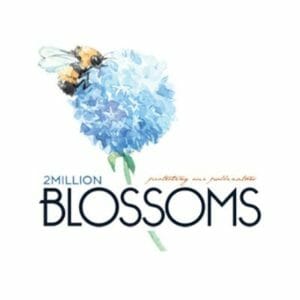Destruction of biodiversity can sometimes feel like such an overwhelming problem, the average person has no idea where to begin if they want to make a difference. To those who feel this way, Arizona State University biologist Kirsten Traynor has a suggestion: Start with bees.
In the face of the climate crisis, all sorts of animals are facing extinction. But while the average person may not be able to do much about rhinos, tigers or birds, they can certainly help bees.
That is why Traynor, the former editor of the American Bee Journal and current research associate in the Global Biosocial Complexity Initiative, founded the new magazine “2 Million Blossoms.” Filled with spectacular photography, writing and design, the quarterly magazine includes interesting pollinators you may have never heard of and features numerous suggestions on what you can do to help bees. For example, planting the right food source on flat surfaces that are unused can become a nice meal for bees in the spring, summer and fall. The magazine also includes initiatives going on in cities and countries around the world.
Not to be outdone, the writing is just as phenomenal as the photography. The inaugural issue features a story by natural history writer Craig Childs about using bees to find water in one of the West’s harshest deserts. Other stories include a humorous and thoughtful piece about the ethics of beekeeping and how to plant the best garden for pollinators.
“It’s aimed at both beekeepers who do a lot of outreach, who are at farmers markets and who are engaging customers so they have information to share, and then it’s for a lot of native bee enthusiasts and other pollinator enthusiasts,” Traynor said. “When we say save the bees, most people think of the charismatic honey bee, but there are actually 20,000 species worldwide of bees. It’s trying to illustrate that it’s those other bees that are really in trouble and can use our help in small changes that we do in our backyards and balconies (that) can really add up to (a) habitat for them.”
In this interview, ASU Now talked with Traynor about the state of bees worldwide, what you can do to help and what she hopes to accomplish with the magazine.
